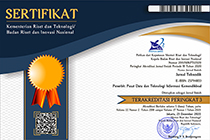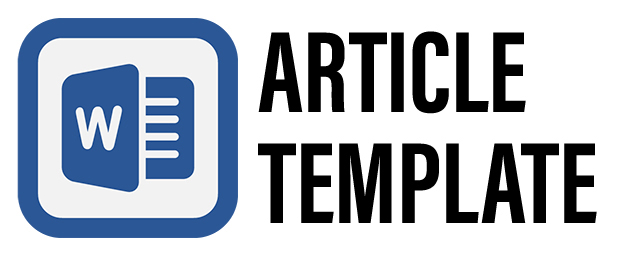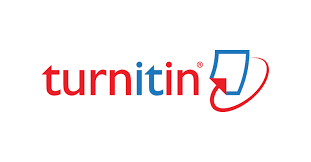PEMANFAATAN PORTAL RUMAH BELAJAR UNTUK MENINGKATKAN KOMPETENSI TEKNOLOGI INFORMASI DAN KOMUNIKASI GURU DAERAH TERTINGGAL Utilization of ‘Rumah Belajar’ to Enhance Left Area Teachers’ Competency on Information and Communication Technology
DOI:
https://doi.org/10.32550/teknodik.v0i1.514Keywords:
portal Rumah Belajar, TIK, kompetensi, guru, daerah tertinggalAbstract
Kajian ini didasarkan pada kenyataan bahwa guru dituntut harus memiliki kompetensi Teknologi Informasi dan Komunikasi (TIK) sesuai dengan perkembangan pendidikan di Indonesia dan bahwa telah dikembangkannya portal Rumah Belajar oleh Pusat Teknologi Informasi dan Komunikasi Pendidikan dan Kebudayaan (Pustekkom) sejak tahun 2011. Tuntutan bahwa guru harus memiliki kompetensi TIK juga berlaku bagi guru-guru di daerah tertinggal. Permasalahannya adalah bagaimana guru daerah tertinggal tersebut memanfaatkan portal Rumah Belajar untuk meningkatkan kompetensi TIK mereka. Tujuan penelitian ini adalah: 1) mengeksplorasi pemanfaatan portal Rumah Belajar di daerah tertinggal; 2) memotret kondisi kompetensi TIK guru daerah tertinggal; dan 3) menganalisis hubungan pemanfaatan portal Rumah Belajar dengan peningkatan kompetensi TIK guru. Penelitian ini menggunakan teknik pengumpulan data survei terhadap guru daerah tertinggal. Penetapan guru sebagai sumber data dilakukan dengan menggunakan teknik purposif. Dari hasil analisis data, dapat disimpulkan bahwa terdapat hubungan positif antara pemanfaatan portal Rumah Belajar dengan peningkatan kompetensi TIK guru daerah tertinggal. Koefisien korelasi hasil survei adalah 0.67, dan ini termasuk dalam kategori korelasi tinggi.
 This study is based on the fact that teachers are required to have competency on Information and Communication Technology (ICT) in accordance with Indonesian education development and that Pusat Teknologi Informasi dan Komunikasi Pendidikan dan Kebudayaan (Pustekkom) has been developing a portal of Rumah Belajar since 2011. Teachers in left areas are also required to have competency on ICT. The problem is how teachers in left areas utilize the portal of Rumah Belajar to enhance their competence on ICT. The objectives of this study are 1) to explore the utilization of Rumah Belajar portal in left areas; 2) to picture the teachers’ ICT competency in left areas; and 3) to analyize the relationship between te utilization of Rumah Belajar portal and teachers’ ICT competency enhancement. This study applies the survey data collecting technique from the teachers in left areas. The pointing of teachers to be the respondents is done with the purposive technique. Based on the analysis result, it can be summarized that there is positive correlation between the utilization of Rumah Belajar portal and teachers’ ICT competency improvement in left areas. Correlation coefficient of this study is 0.67, which is categorized as high correlation category.
Â
References
Ali, M. (2014). Memahami Riset Perilaku dan Sosial. Jakarta: Bumi Aksara.
Anderson, J. (2010). ICT Transforming Education – A Regional Guide. Bangkok: UNESCO Asia and Pacific Regional Bureau for Education.
Bokova, I. and Touré, H.I. (2013). Technology, Broadband, and Education – Advancing the Education for All Agenda. Paris: UNESCO.
Bonk, C.J. (2009). The World is Open – How Web Technology is Revolutionizing Education. New Jersey: Jossey-Bass A Wiley Imprint.
Creswell, J.W. (2014). Research Design – Pendekatan Meteode Kualitatif, Kuantitatif, dan Campuran, Edisi 4. Yogyakarta: Pustaka Pelajar.
Ornstein, A.C., Pajak, E.F. and Ornstein, S.B. (2009). Contemporary Issues in Curriculum – Fourth Edition. United States of America: Pearson International Edition.
Sudjana. (2013). Metode Statistika. Bandung: PT Tarsito Bandung.
UNESCO. (2011). ICT Competency Framework for Teachers. Paris: UNESCO.
UNESCO. (2014). Harnessing Technology for Quality Teacher Training. Paris: UNESCO.
UNESCO. (2015). Incheon Declaration and Framework for Action for the Implementation of Sustainable Develompent Goal 4. Paris: UNESCO.
Jurnal/Prosiding/Disertasi/Thesis/Skripsi:
Al Musanna. (2017). Indigenisasi Pendidikan: Rasionalitas Revitalisasi Praksis Pendidikan Ki Hajar Dewantara. Jurnal Pendidikan dan Kebudayaan, 2:1, 117-133.
Gast, N. (2018). Introducing Live Group Meetings in an Online Class: Tips and Techniques. Internet Learning Journal. Volume 7 Number 1, 49-64. DOI 10.18278/il.7.1.5.
Gillum, W.M. (2018). Utilizing Online Apps to Improve University Instruction. Internet Learning Journal. Volume 7 Number 7, 15-30. DOI 10.18278/il.7.1.8.
Huss, R. (2018). Preparing Teachers for the 21st Century Classroom. Internet Learning Journal. Volume 7 Number 1, 15-30. DOI 10.18278/il.7.1.3.
Jalal, D. and Al-Debei, M.M. (2013). Developing and Implementing a Web
Portal Success Model. Jordan Journal of Business Administration, 9:1, DOI: 10.12816/0002052.
Lauricella, S. (2009). “Is this for real?â€: Web Literacy for the Web-Savvy. Communication Teacher, 23:4, 137-141. DOI 10.1080/17404620903218809.
Mirriahi, N., Alonzo, D. and Fox, B. (2015). A Blended Learning Framework for Curriculum Design and Professional Development. Research in Learning Technology, 23:1, 1-14.
Muammaroh, N.L.R. (2014). Antara Profesi, Kompetensi dan Tugas Kependidikan Seorang Guru. Madrasah, 7:1, 71-88.
Prestridge, S. J. (2014). Reflective Blogging as part of ICT Professional Development to Support Pedagogical Change. Australian Journal of Teacher Education, 39:2, 70-86. DOI http://dx.doi.org/10.14221/ajte.2014v39n2.4.
Rajalakshmi, S. and Banu, R.S.D.W. (2009). Developing an Education Web Portal for Knowledge Sharing and Capturing. International Journal of Engineering and Technology. Vol.1, No.3, 231-235.
Ratliff, K. (2018). Building Rapport and Creating a Sense of Community: Are Relationships Important in the Online Classroom? Internet Learning Journal. Volume 7 Number 1, 31-48. DOI 10.18278/il.7.1.4.
Shahmir, S., Hamidi, F., Bagherzadeh, Z., and Salimi, L. (2010). Role of ICT in the Curriculum Educational System. Procedia Computer Science, 3:2011, 623-624.
Siregar, E. (2016). Pelembagaan Web-Based Learning pada Jurusan Kurikulum dan Teknologi Pendidikan FIP UNJ. Jurnal Inovasi Teknologi Pendidikan, 3:1, 1-12.
Smaldino, S.E. (2011). Preparing Students with 21st Century ICT Literacy in Math and Science Education. Journal of Curriculum and Instruction, 5:1, 1-3.
Theodorou, E., Philippou, S. and Kontovourki, S. (2017). Caught Between Worlds of Expertise: Elementary Teachers Amidst Official Curriculum Development Processes in Cyprus. Curriculum Inquiry. DOI: 10.1080/03626784.2017.1283591.
Tobail, A., Crowe, J., dan Arisha, A. (2016). Interactive Learning: Developing an
eSimulation Portal Framework. Irish Journal of Management, 35:1, 17-33.
Vivian, R., Falkner, K. and Falkner, N. (2014). Addressing the Challenges of a New Digital Technologies Curriculum: MOOCs as a Scalable Solution for Teacher Professional Development. Research in Learning Technology, 22:1, 24691. DOI 10.3402/rlt.v22.24691.
Vrasidas, C. and Glass, G.V. (2007). Teacher Professional Development and ICT: Strategies and Models. Yearbook of the National Society for the Study of Education. 106:2, 87
Lainnya:
Perpres No.131 Tahun 2013 tentang Penetapan Daerah Tertinggal Tahun 2015-2019.
Simataa, S.M. 2016. International Congress on ICT in Education: Education in the Internet Age and Education 2030 Agenda. Presented in Qingdao, RRC.
Undang-Undang No.14 Tahun 2005 tentang Guru dan Dosen.
http://www.p21.org/our-work/p21-framework
Downloads
Published
How to Cite
Issue
Section
Citation Check
License
Please download and complete the Form, Copyright Transfer, and Ethics Statement Form. The following is provided at the time of submitting the text (Upload Additional Files):









